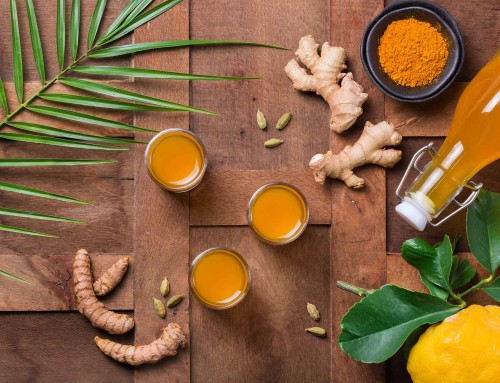Maharishi AyurVeda Approach to Respiratory Health

Autumnal challenges
When the weather becomes colder and windy (Autumn), it sets the scene for an increase in respiratory discomfort. Coughs, colds, bronchitis, asthma and in the extreme pneumonia become more prevalent. Other more chronic conditions such as chronic obstructive pulmonary disease and emphysema may become aggravated. This can increase the demand on the national health care services, especially with the elderly.
Sometimes we are caught by surprise with a sniffle that becomes a cold and develops into a dry cough, productive cough or bronchitis. A cold or flu may also trigger an asthma attack. If we are run down or weakened for some reason the cold or flu may progress into pneumonia.
Or we may have a history of asthma that flares-up when the air becomes cold and dry, especially during winter sports resulting in exercise-induced asthma. Then shortness of breath, coughing and wheezing may catch us by surprise.
From a young age we often understand what is happening with a simple “I can’t breathe properly.” As breathing comfortably in and out is essential for life anything that obstructs clear airways is uncomfortable and a concern.
Ayurvedic Understanding
As the warmer weather of summer gives way to the changeable and more cool weather of autumn (Vata season) our digestive fire (called agni), can start to fluctuate or become changeable. When food is not fully digested impurities accumulate within the body. Where it accumulates first is guided by your body-type of nature.
- Vata types have a tendency for impurities to first accumulate in the large intestine.
- Pitta types have a tendency for impurities to first accumulate in the small intestine.
- Kapha type have a tendency for impurities to first accumulate in the lungs.
As impurities accumulate they can overflow and spread to other areas such as the respiratory system causing symptom of cough which often precedes a respiratory imbalance. Dependent on the dosha that is imbalanced your symptoms of cough will be different:
Vata imbalance produces minimal mucous which may be coughed up as small amounts of a hard mucous which is grey in colour. Favour Vata balancing foods and a regular lifestyle with early to bed and regular mealtimes.
Pitta imbalance produces moderate mucous which is sticky and yellow in colour. Favour Pitta balancing foods and adopt moderation to ensure you reduce the impact of stress from overdoing it.
Kapha imbalance produces large amounts of mucous which is sticky, cloudy and white in colour. Favour Kapha balancing foods and be physically active most days. Be particularly attentive to the recommendations below.

Cold or Flu Prevention Action Plan
- Drink plenty of warm fluids and eat less.
At this time the appetite naturally declines so favour light easy to digest foods such as kitchari, soup or steamed vegetables. Drink Kapha tea or Vata tea to help stimulate digestion and to aid in reduction of congestion. For Vata types support digestion by taking 1 tablet of Digest Plus (MA154) after meals 2-3 times a day. For Kapha types take Trikatu with Clove (MA99) at the start of your meal.
- Helpful herbals for all:
Take 1-2 tablets of Cold Season Defence (MA1404) prior breakfast and evening meals along with 2 tablets of MA251 Galls/Liquorice Complex. Galls combines anti-allergenic and anti-microbial actions, while liquorice helps reduce congestion. A Maharishi AyurVeda Inhalation oil (MA634) made of essential oils including camphor, eucalyptus, clove and fennel is also very useful for helping to clear a Kapha type congestion.
- Rest, rest, rest.
As the saying goes “Rest is nature’s cure.” When feeling the pulse of someone who is fighting a bug, there is always a sense that the system is under attack and resources are being mobilised to meet the need. Resting at this time greatly assists the body to restore balance.

Tips for balancing Kapha symptoms
When you have a build up of Kapha type congestion eat a lighter meal in the evening and avoid leftovers, processed food, cold food and drinks.
It is best to favour a Kapha balancing diet of whole grains including barley, vegetables including leafy greens, broccoli and cauliflower, fruit such as stewed apples and pears and spices such as cumin, coriander, turmeric, ginger, cloves, black pepper and fennel seeds.
Avoid cheese, yogurt, chocolate, and potatoes especially if there is congestion. If you are well enough to go about your daily activities then avoid day sleep as it will increase congestion.
Environmental and Lifestyle Tips for Respiratory Health
Due to the many environmental and lifestyle causes that can trigger respiratory disorders there are many preventative measures you can take to assist with your health.
• Clean your house and working environment often. Dust and mould can trigger asthma attacks and worsen chronic illnesses.
• Use a dehumidifier or air filter to decrease moisture and air pollutants.
• Exercise. Having respiratory disorders does not mean you have to lead a sedentary lifestyle. Exercise generally improves lung capacity and strengthens heart muscle. which helps relieve symptoms. Aim for 30 minutes of walking or exercise that you enjoy on most days. If you’ve been inactive, start slowly and gradually increase your activity over time.
• Maintaining a healthy weight as excess weight increases the workload for both the heart and lungs.
• Get adequate sleep. Aim for 7.5 – 8 hours of undisturbed sleep most nights.
• Control heartburn and reflux. The acidity of reflux can affect your airways. To minimize the risk of heartburn eat your main meal at lunchtime when it is more easily digested. Do not overeat and eat your meal more slowly over a longer space of time. Foods that are processed or high in sugar and fats are harder to digest and can increase the risk of indigestion or heartburn.
• Remember, laughter is the best medicine.
• If you are a smoker, consider reaching out to community support programmes to learn more about how to quit with support.
• Think prevention and take MAK Nectar and MAK Ambrosia daily to build your immune system and nourish all your tissues layers, “as a penny of prevention is worth a pound of cure.”
Wishing you the bliss of balance this Autumn
Linda Sinden
Maharishi AyurVeda Consultant
Linda Sinden has been a practising Maharishi AyurVeda Consultant since 1990 and is a regular contributor to our health articles. She has a practice in Auckland, New Zealand and also provides phone or Skype sessions for those who need assistance, but don’t have a consultant in their vicinity.
Email: lindasinden@orbislife.co.nz
Mobile: +64 212237525
Skype: Linda.Sinden





